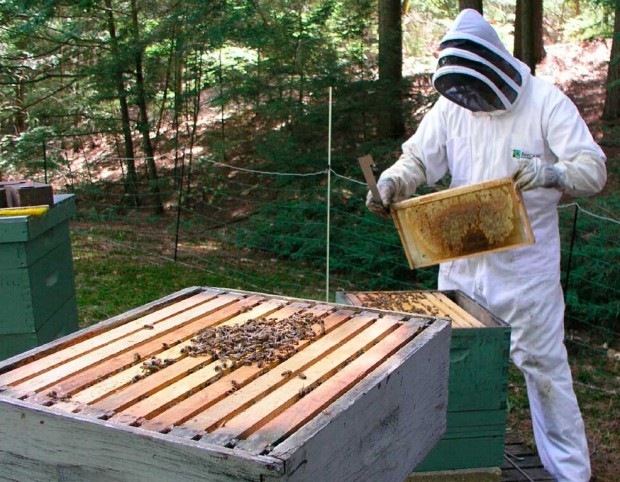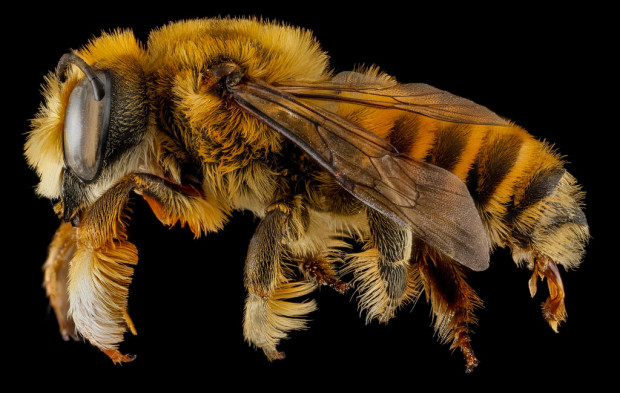NPR:
In the global debate over neonicotinoid pesticides, the company that makes most of them has relied on one primary argument to defend its product: The evidence that these chemicals, commonly called “neonics,” are harmful to bees has been gathered in artificial conditions, force-feeding bees in the laboratory, rather than in the real world of farm fields. That company, Bayer, states on its website that “no adverse effects to bee colonies were ever observed in field studies at field-realistic exposure conditions.”
Bayer will have a harder time making that argument after today. (Although it still has another argument in its quiver. We’ll get to that later.)
This week, the prestigious journal Science reveals results from the biggest field study ever conducted of bees and neonics, which are usually coated on seeds, like corn and soybean seeds, before planting. Scientists monitored honeybees and two types of wild bees at 33 sites across Europe, in the United Kingdom, Germany and Hungary. At each site, the bees were placed near large fields of canola. Some of the fields contained canola grown from seeds that were treated with neonicotinoid pesticides, along with a standard fungicide. Other fields were planted with canola treated only with fungicides.



